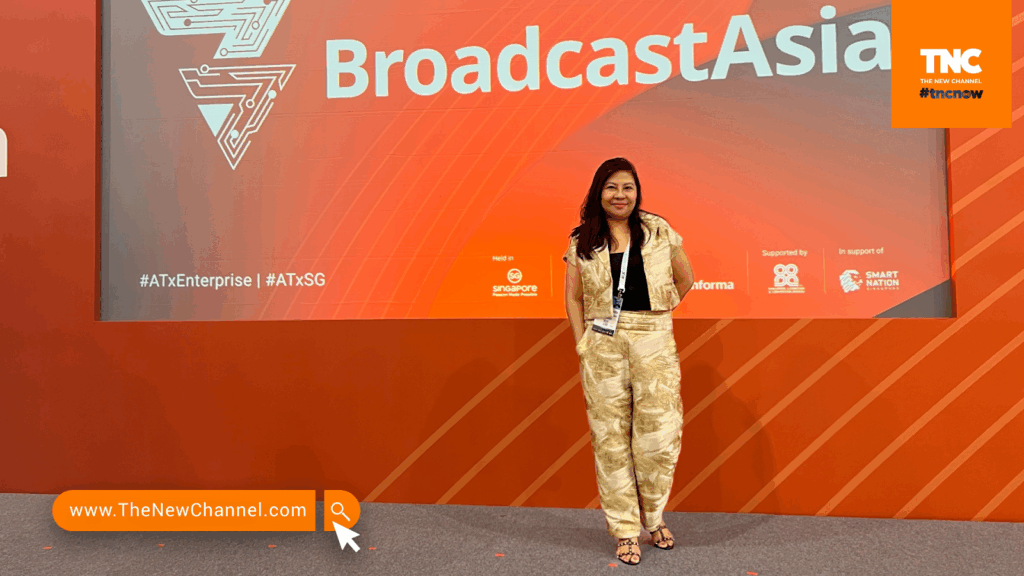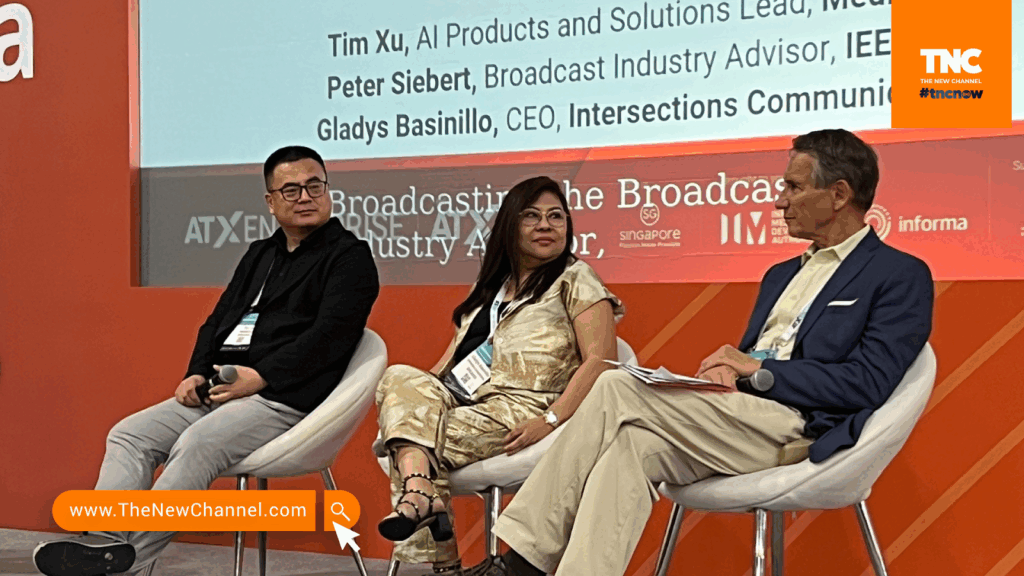As artificial intelligence reshapes global industries, the Future of Work in Media and Entertainment panel brought together thought leaders to explore how technology is revolutionizing workflows, content creation, and ethical practices.
Among the insightful voices was Gladys Basinillo, Founder and CEO of Intersections Communications, who offered a grounded yet forward-looking perspective on how AI is transforming the media agency landscape—especially in the Philippines.

Adapting to the Changing Media Landscape
Gladys Basinillo drew from her extensive experience, including leadership roles at Group M and Praxis, to paint a vivid picture of how media agencies must evolve. She emphasized that while AI has undeniable potential to optimize operational efficiency, it should be seen as a complementary tool—not a replacement for human talent.
Says Gladys, “People are afraid that they’re going to lose their jobs. We’re saying no, but we need to change how we operate, how we build our business, in terms of our structure, in terms of upskilling, and there could be roles that we can optimise.”
Gladys also stressed the importance of forging partnerships with tech platforms like Meta, Google, and TikTok to ensure that agencies remain competitive and relevant in the digital age.
“What is exciting is for us especially in marketing (is that) we are like connectors. We’re trying to understand the journey in AI is different across industries, countries, across our clients so we need to hand hold each other and see how we can progress, because you need the buy in of both your clients, your team and everyone.
Obviously, a lot of it also is dependent on our partners helping agencies and clients in the likes of Meta, Google, Tiktok that provide for us so much savings in terms of our man hours and we have more time to do strategies,” Gladys adds.

Ethical Considerations in AI Development
Gladys stressed the importance of public trust and responsible communication as AI shapes media and advertising. She also challenged complacency, urging ethical AI governance to prevent misinformation and protect credibility.
The Philippines has several initiatives on public literacy on AI, even the advertising industry. As Gladys shared, “In the Philippines, (advertising) is a self-governed industry reliant on the organizations of the advertisers, the broadcasters, etc. (Among the) programs that provide literacy on AI is ensuring that content we put out there is not fake news.
It also depends on the policies of the market. It’s our responsibility, all of us, to make sure that we inform the public. It’s a double edged sword. While AI is very powerful, it is also very dangerous.
The broadcast industry will play a very big role in this. We have a young population in the Philippines, and we’re the social media capital of the world. Imagine if they’re consuming a lot of hours of fake news. That’s going to be detrimental to our future,” Gladys continued.
The panel also featured regional panellists Tim Xu, AI Products and Solutions Lead, Mediacorp Singapore who showcased how generative AI is enhancing news summarization and short-form content creation, and Dr. Peter Sieberg, Dr․ Peter Siebert, Broadcast Industry Advisor, IEEE-BTS, who reflected on AI’s evolution from analogue to transformative digital disruptor. The panel was moderated by Philomena Gnanapragasam, Secretariat Director / CEO, AIBD.
For more NEW stories, search #TNCnow or read thru 💬 https://thenewchannel.com/highlights/
Check out 🌐 https://www.TheNewChannel.com/
For more NEW stories, follow TNC on social media or search #TNCnow.
#OnTNC #FutureOfWork #MediaAndEntertainment #AIinMedia #TheNewChannel


